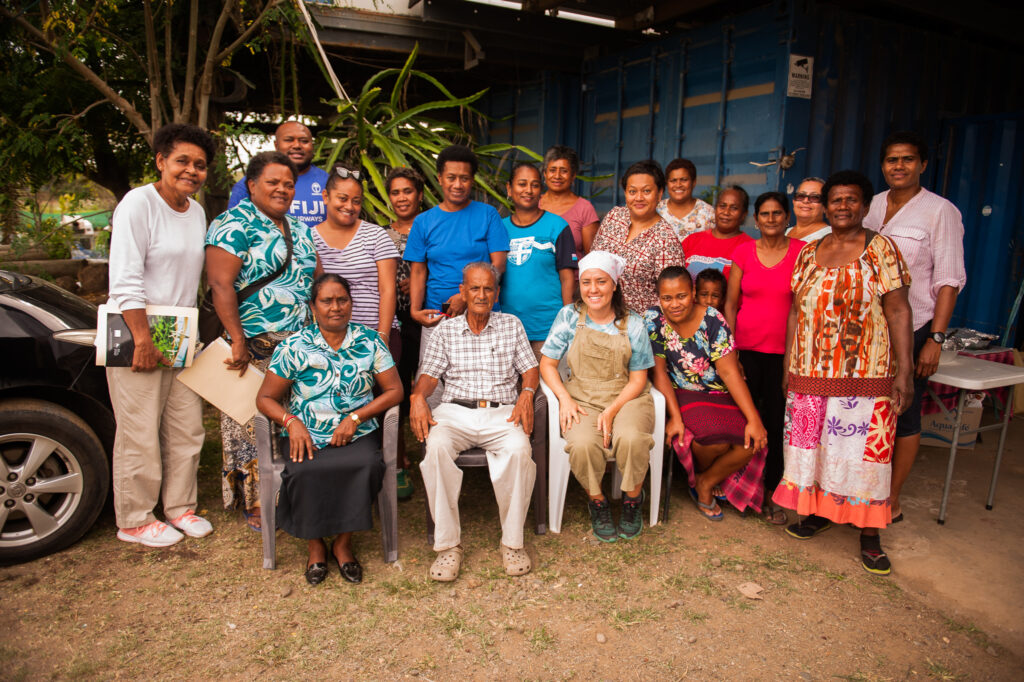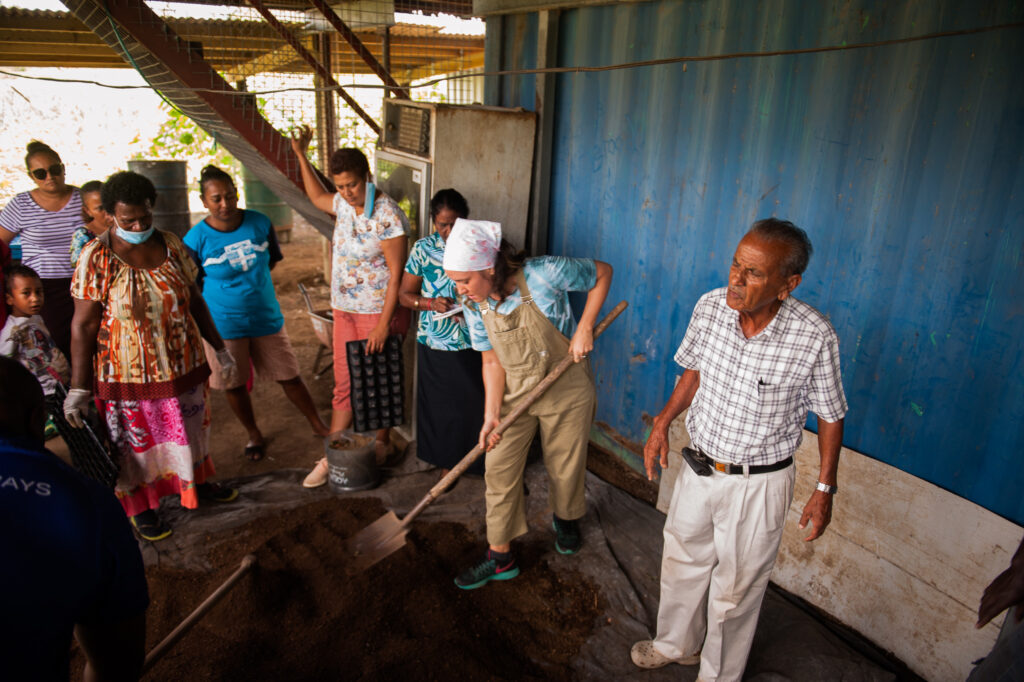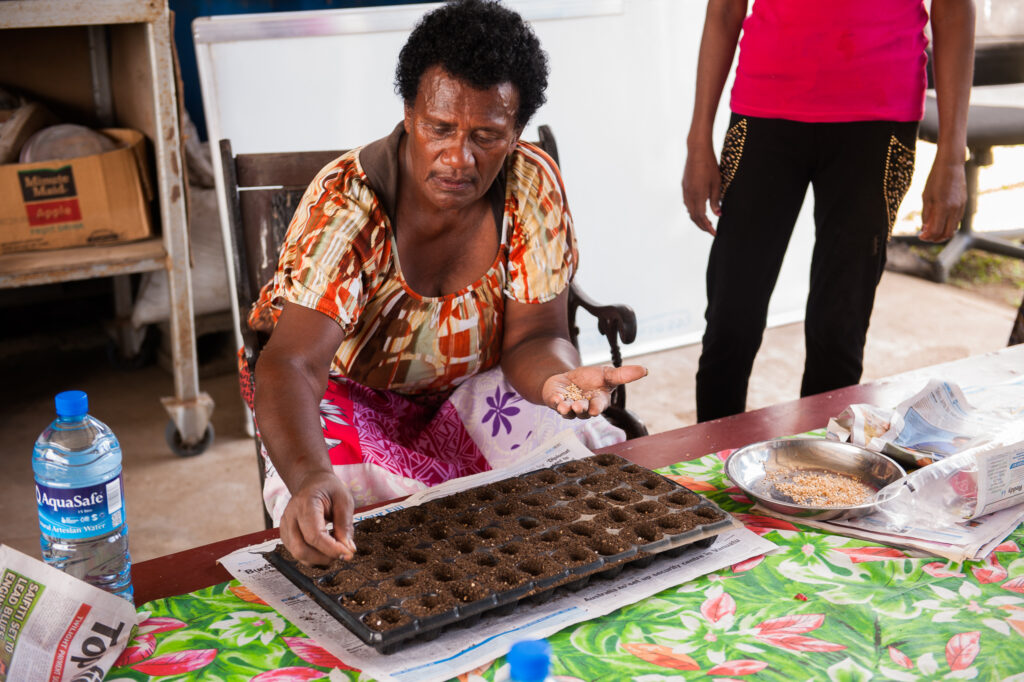
The coronavirus COVID-19 pandemic brought Fiji’s hospitality, aviation and tourism industry to its knees in 2020 forcing nearly 40,000 workers mainly on the western side of the main island of Viti Levu to look elsewhere to support their families. For many of these workers, it was the only career they knew and devoted themselves to for many years. To wake up one morning and suddenly find themselves unemployed and uncertain about when things would normalise, was enough to send people into a tailspin. For a group of women in the tourism town of Nadi however, it was their season to adapt, be flexible, move and change as the pandemic took its toll. It meant moving from hotel lobbies or offices or even the cabin of an aircraft to nurseries outdoors, and getting hands grubby. It meant networking with other like-minded and like-values women and learning from someone who is a leading figure in the Fiji horticulture industry and is highly regarded throughout the Pacific Island region, Mr. Sant Kumar. Known affectionately in Fiji as the island nation’s ‘Seedling Man,’ Kumar is the owner of Bula Agro Enterprises located in Nadi on the west coast of Viti Levu. “How do we communicate today,” he is fond of asking participants of his ‘Tel-a-Woman” seminar. “One is by telephone of course, which enables you to communicate with someone else.
“There is also the television which communicates to you, but doesn’t hear you even if you try to communicate with it. “But when the power is out, neither the telephone nor the television will work. “This is why ‘tel-a-woman’ is the best form of communication. “Never mind if you have power or you don’t, communication will still work if you tell a woman. “Whether its cooking food, or growing crops, if you tell a woman, she will do it. “And you know if you tell 10 women, those 10 will tell 10 more women and in a short time, your message gets across, power or no power.” It is in a series of seminars like these that Kumar preached the message of getting women to lead the ‘revolution’ to develop backyard gardens or vegetable farms that will source free and nutritious food for their families, most of whom have been hit hard by the COVID-19 pandemic. Nearly all of his ‘Tel-a-Woman’ participants were those that have lost work from the many hotels and resorts around Nadi, the Nadi airport ground handling company as well as Fiji’s international carrier, Fiji Airways. Over two-days of training, and under funding from the FO4ACP programme of the Pacific Island Farmer Organisations Network (PIFON), women participants learn about potting media, sterilising soil, organic farming and practical methods of building home based nurseries, free of pests and weeds.


